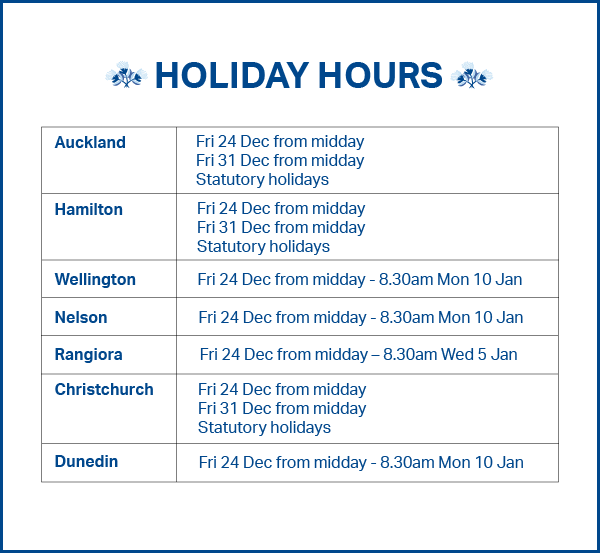The Government’s $12.1 billion support package is designed to help businesses and individuals with Covid-19 related financial difficulties and you can keep up to date with the latest business information and guidance here.
There is also a free Government helpline available between 8am-1am, seven days a week. 0800 779 997
In addition to the Employer Wage Subsidy Scheme, there are other practical options for businesses seeking cash-flow relief and support. We’ve highlighted three that may be of interest to you and your business.
Small Business Cashflow Loan Scheme
The Government will provide loans of up to $100,000 to small businesses impacted by COVID-19 to support their cash flow needs and fixed costs. Eligible small businesses employing up to 50 full-time equivalent employees can apply for the loan through the IRD.
Details of the loans include:
- $10,000 to be provided to every business
- an additional $1,800 per equivalent full-time employee
- 3% interest rate for a maximum five year term
- interest free if loans repaid within a year
- no repayments required for the first two years.
Business Finance Guarantee Scheme
In partnership with participating approved banks, the Government will support targeted new loans (including increases to existing limits) to eligible businesses. Small to medium businesses with annual revenue between $250,000 and $80 million can apply to their banks for loans of up to $500,000 over a term of up to three years.
You can find out more about the scheme and download and application form here.
Business Advice Funding
The Government has announced a $25 million Covid-19 Advisory Funding package for small to medium businesses and the self-employed to be administered over 12 months through the Regional Business Partner Network (RBP).
Businesses can access up to $5,000 worth of fully funded assistance through one of the RBP affiliated advisers including advice in areas such as business continuity planning, finance and cash-flow management, human resources, and help with networking.
There are 14 RBP offices throughout New Zealand and registration is free.
Capability Vouchers
Capability Vouchers are available for eligible business owners to develop management capability. The vouchers subsidize the cost on a co-funding basis of workshops, courses and coaching, and are administered by the Regional Business Partner Network.

